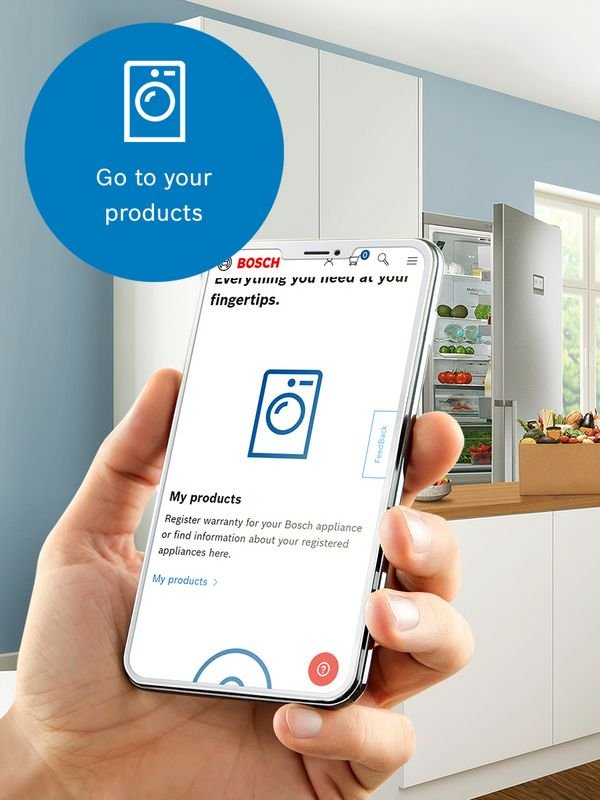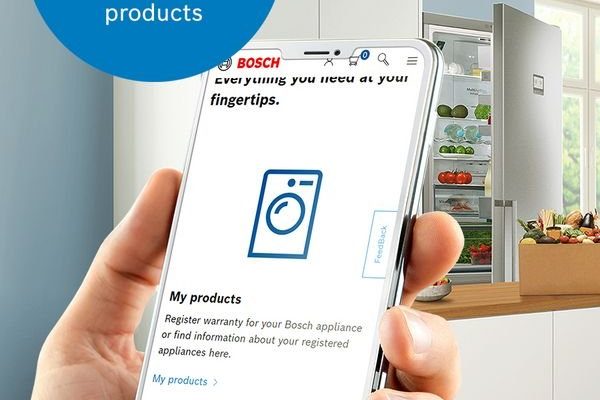
It’s pretty common to assume that a warranty just sticks with a product, no matter who owns it. But with Bosch kitchen appliances—dishwashers, fridges, ovens, the works—it’s not always that simple. Let’s break down what actually happens when you transfer ownership, why it matters, and what pitfalls you should look out for, so you don’t run into cold surprises later.
How Bosch Kitchen Appliance Warranties Usually Work
Before we get into the whole “can I transfer the warranty?” discussion, it helps to know how Bosch’s appliance warranties typically function. Think of a warranty like a promise from Bosch: “If something goes wrong with this kitchen appliance (and it wasn’t your fault), we’ll take care of it.” For most Bosch kitchen appliances, this promise lasts for a set period—often one or two years from the date of purchase.
Here’s the thing: The warranty is tied to both the appliance and whoever originally bought it. Bosch expects you to register the appliance (either online or by mail) with your details, proof of purchase, and sometimes even the appliance’s serial number. This record connects the warranty service to your ownership.
- Standard coverage: Usually covers defects in materials or workmanship, not accidental damage or normal wear and tear.
- Registration: Required for some extended warranties or special promotions. It helps Bosch identify you during any claim process.
- Service calls: Bosch’s authorized technicians generally need proof that you, as the owner, qualify for warranty work.
So, just because you have a shiny Bosch cooktop in your kitchen doesn’t guarantee that the warranty magic automatically travels with it if you move—or if you’re the one buying secondhand.
Can You Actually Transfer a Bosch Kitchen Appliance Warranty?
Let me explain: Most Bosch kitchen appliance warranties are NOT transferable by default. This means if you sell your Bosch refrigerator to a friend, or the new owner of your house inherits your Bosch dishwasher, the warranty generally won’t follow the appliance to its new owner. Bosch’s terms usually tie their standard manufacturer warranty strictly to the original purchaser at the original address.
It’s sort of like how some concert tickets can’t be resold or transferred—they’re meant for the person who first bought them, and that’s the end of the story. If you try to get warranty service as a new owner, Bosch may ask for proof of purchase in your name, which you obviously can’t provide.
Honestly, it’s a common trap. Many buyers assume warranties are like recipe books—just hand them over! But Bosch wants that direct link to you for eligibility and service.
There are occasional exceptions (for example, in certain countries with different consumer laws), but in the U.S., Canada, and most European countries, Bosch’s kitchen appliance warranty sticks with the first buyer and the specific installation address.
What to Expect If You’re the New Owner of a Bosch Appliance
You might be wondering: “What if I just claim the warranty anyway? They’ll never know I’m not the original owner, right?” Not so fast! Bosch technicians generally **require proof of purchase**—and sometimes even verify the installation address—before honoring a claim. This isn’t to be a pain; it’s to make sure everyone is playing by the same rules.
Here’s what typically happens if you try to claim warranty service as a new owner:
- Bosch will ask for your purchase receipt or registration info.
- If the documentation doesn’t match your name and/or address, the claim can be denied.
- You’ll likely need to pay out-of-pocket for service or repairs, unless you get lucky with goodwill repairs (which are rare and not guaranteed).
There’s a bit of a gray area with appliances that aren’t officially “registered” with Bosch. But if the original owner submitted their info, you’re out of luck for warranty transfer. It’s always safest to assume you’ll need your own proof, unless Bosch explicitly allows warranty transfer in your area.
Are There Any Exceptions or Loopholes?
Honestly, not many. Bosch is pretty strict about its standard warranty policies. However, there are a few situations where you might catch a break:
- Home sales: If you buy a house and the Bosch appliances are part of the real estate deal, some builders or sellers may offer a separate “builder warranty” or transfer a new-appliance warranty as part of the contract. This is rare and needs to be spelled out in writing.
- Retailer warranties: Occasionally, retailers offer their own extended protection plans (think Best Buy or Home Depot) that might be transferable. These are separate from Bosch’s rules, and you’ll want to read the fine print.
- Consumer laws: Certain countries or states may require warranty transfer in specific case scenarios (for example, appliance resale dealers). But again, this is unusual for U.S. and European buyers.
If you’re hoping for a “grandfathered” warranty situation just because you just moved in and there’s a sparkling Bosch fridge, don’t count on it. Always check the original paperwork, and if in doubt, reach out to Bosch support directly.
What If I Have an Extended Warranty or Service Plan?
This is where things can get a little tricky. Many people buy extended warranties (sometimes called protection plans or service contracts) through the retailer or a third party when they buy a Bosch appliance. These plans often sound fancier and may run for three, five, or even ten years—way beyond Bosch’s standard factory warranty.
Let me break it down:
- Bosch brand extended warranties: Still typically tied to the original owner. Transfer isn’t standard policy, but in some cases, you might be able to request a transfer if you contact Bosch customer service and provide new owner info.
- Third-party or retailer plans: Policies vary wildly. Some big-box retailers actually allow transfer of their service contracts for a fee or with proper documentation. Others stick closely to Bosch’s lead and don’t allow transfer at all.
- Registration code and paperwork: Always check the contract terms. If it doesn’t mention transfer, don’t assume you’re covered as the new owner.
Don’t be shy about calling the warranty or service plan provider directly. It’s worth the conversation, especially if you’re buying or selling a nearly-new Bosch appliance.
Why Appliance Warranty Transfer Matters (and What’s At Stake)
At first glance, this might all seem like splitting hairs—until you actually need a repair. Here’s why warranty transfer is a bigger deal than it looks:
- Peace of mind: If you think you’re covered and you’re not, an unexpected repair bill can throw off your whole budget. Bosch parts and labor aren’t cheap.
- Resale value: If you’re selling your home or appliance, a transferable warranty can add trust and value. Buyers love knowing they’re protected (even if, with Bosch, that’s rare).
- Long-term support: Kitchens are full of moving parts—timers, heating elements, control boards. If something fails and you’re not the original owner, you’re on your own for troubleshooting, repairs, and costs.
It’s the difference between driving a car with roadside assistance and one with a “you’re on your own” sign taped to the dashboard. If warranty transfer is important to you, always ask for it up front, in writing, before finalizing any deal.
How to Check or Prove Ownership for Warranty Purposes
So, you’ve just stumbled into a Bosch appliance situation—maybe you’re the new homeowner, or you inherited a kitchen from a relative. Now what? Can you prove ownership, or are you out of luck?
Here’s what Bosch (and most other appliance makers) look for:
- Original purchase receipt: Ideally, it should list the appliance’s model and serial number, date of purchase, and the buyer’s name and address.
- Warranty registration confirmation: This is emailed or mailed after the original buyer registers the product with Bosch.
- Appliance serial number: Usually found on a sticker inside a door, on the side, or on the back of the appliance. Helpful for verifying details but not enough for a warranty transfer.
If you’re missing any of this, warranty coverage gets much more complicated. Your best bet is always to contact Bosch customer service with the serial number and explain your situation. Sometimes they’ll make exceptions, but don’t rely on it.
Is It Worth Buying a Used Bosch Appliance Without a Warranty?
You might be eyeing a pre-loved Bosch cooktop at a tempting price and wondering if it’s a good idea, even without that warranty safety net. The truth? Used Bosch appliances are generally built to last, but you’ll be doing your own troubleshooting if something goes wrong.
Here are a few things to consider:
- Check for codes and error messages: Run a quick test cycle, listen for odd noises, and check for trouble codes on digital displays.
- Ask about recent repairs: If the seller has paperwork for work done (even out-of-warranty fixes), it’s a positive sign they took care of the machine.
- Budget for future repairs: Without warranty coverage, you’ll be paying for any parts, resets, or sync issues out of pocket.
- Consider alternatives: Some universal or third-party repair services aren’t as picky about ownership or original proof—but check reviews and reliability first.
If you’re comfortable with a small risk, a used Bosch can still be a great investment—just don’t bank on the original warranty saving your bacon.
What To Do Next If Ownership or Warranty Is Unclear
Let’s say you’ve already bought your Bosch appliance or you’re in the process of moving into a new place. The warranty status is a big question mark. What now?
- Gather paperwork: Try to get the original purchase receipt, warranty registration, or any service records from the seller or previous owner.
- Contact Bosch: Call their customer service with the serial number. Be upfront about your situation and ask if any coverage can be transferred or “grandfathered in.”
- Look into extended coverage: Some third-party companies might offer new service plans for recently purchased used appliances (though there’s often a waiting period and inspection).
- Plan for self-service: Learn how to troubleshoot common Bosch appliance problems—resetting codes, pairing controls, or basic maintenance—to extend the machine’s life outside warranty protection.
Even if you don’t get official warranty coverage, knowing your options (or limitations) can save you stress down the road. Knowledge is your best kitchen tool!
Wrapping Up: Bosch Warranty Transfer Isn’t Automatic—But You’ve Got Options
Transferring the warranty on a Bosch kitchen appliance isn’t as simple as handing over a user manual. In most cases, the warranty stays with the original purchaser and address, and Bosch’s policies are strict for a reason—they want to make sure support, troubleshooting, and repairs go to the rightful owner.
But here’s the upside: Clear paperwork, honest communication, and a little research go a long way. Even if warranty transfer isn’t possible, you can still get years of reliable service from your Bosch kitchen appliances—especially when you stay proactive with maintenance and keep your eyes open for alternative support plans.
So whether you’re buying, selling, or just moving, now you know what to expect about Bosch appliance warranties. Sometimes, understanding the fine print is the best kitchen hack of all.
